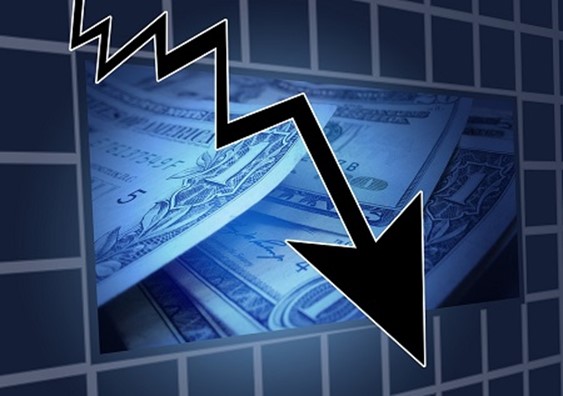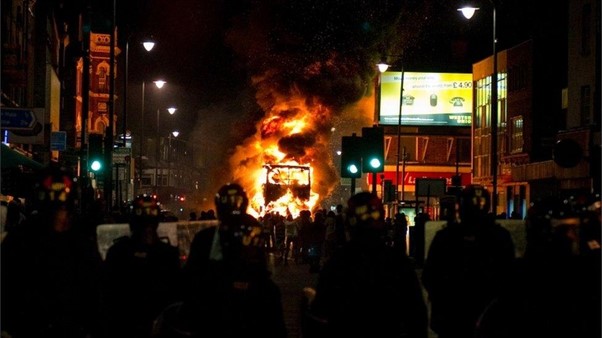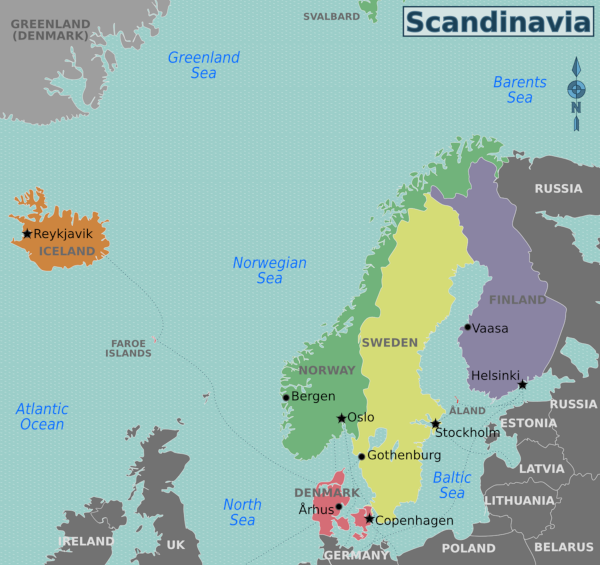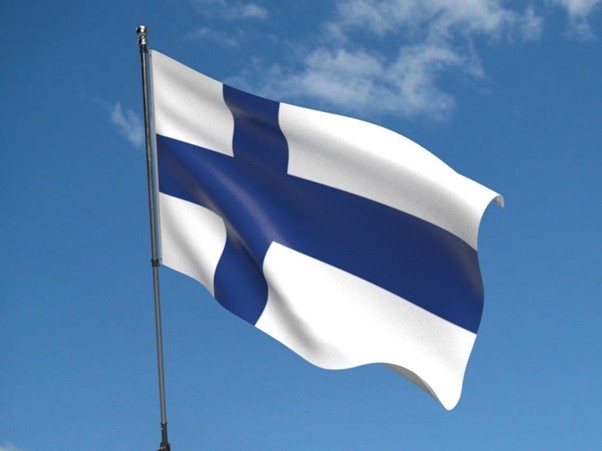The Decay of Democracy
Democracy is at risk. Its survival is endangered by a perfect storm of threats from a rising tide of authoritarianism. The Covid-19 pandemic has exacerbated these threats through the imposition of states of emergency, as has the spread of disinformation, and crackdowns on independent media and freedom of expression.

Sadiq Khan
London Mayor Sadiq Khan asserts that the West must face up to a “Century-defining” battle against a resurgent political Far-right which is on the march across the developed world. He warns of a “resurgent Fascism” online following Trumps inauguration.
Authoritarianism is deepening in non-democratic regimes (hybrid and authoritarian regimes). The year 2020 was the worst on record, in terms of the number of countries affected by deepening autocratization. Attacks on democratic institutions are spreading faster than ever in Europe and Eurasia, and coalescing into a challenge to democracy itself.

Key Findings
- Democracy faced its most serious crisis in decades in 2017 as its basic tenets—including guarantees of free and fair elections, the rights of minorities, freedom of the press, and the rule of law—came under attack around the world.
- Seventy-one countries suffered net declines in political rights and civil liberties, with only 35 registering gains. This marked the 12th consecutive year of decline in global freedom.
- The United States retreated from its traditional role as both a champion and an exemplar of democracy amid an accelerating decline in American political rights and civil liberties.
- Over the period since the 12-year global slide began in 2006, 113 countries have seen a net decline, and only 62 have experienced a net improvement.
- Incumbent leaders and ruling parties are corrupting governance and spreading antidemocratic practices across the region that stretches from Central Europe to Central Asia. These actions are opportunistic, but are often cloaked in an ideological agenda. And as they become increasingly common, they are fuelling a deterioration in conditions that will have global implications for the cause of human freedom
Underlying the effects of the decay of democratic values have been the need to combat the Covid 19 pandemic; but more recently the growth of Social Media, led by Elon Musk and “X”. This has transformed from a vehicle to foster discussion and spread enlightened information into a vehicle to enable the extreme views and interference with Democratic governments by its owner.

Most recently Meta disbands independent impartial fact-checking
On Tuesday, 7th January, Meta disbanded Facebook and Instagram’s third-party factchecking program. The company will also recommend more political content across its social networks.
CEO Zuckerberg announced the changes as he attempts to curry favour with Donald Trump’s incoming administration, demonstrating just how far he will go to win the president-elect’s approval.
The days of big tech companies effectively doing what they like without political interference are coming to an end.
This year Meta faces an antitrust trial and there are moves to revise legislation that effectively protects social media firms from liability for the content they publish.
They, and Silicon Valley's other tech titans, will need all the friends they can get in Washington.
A scan of the news reveals a range of information which should cause great concern to those who value democratic government:
US President Donald Trump

US President Donald Trump has reiterated his desire for the US to acquire Greenland and the Panama Canal, calling both critical to American national security.
Asked if he would rule out using military or economic force in order to take over the autonomous Danish territory or the Canal, he responded: "No, I can't assure you on either of those two.”
"But I can say this, we need them for economic security," he told reporters during a wide-ranging news conference at his Mar-a-Lago estate in Florida.
Both Denmark and Panama have rejected any suggestion that they would give up territory.
UK Premier Starmer

- UK Prime Minister Sir Keir Starmer has begun this year in an explosive row with Elon Musk, which broke out after the Tesla boss criticised the government for rejecting a national inquiry into the grooming gangs scandal.
- Over Christmas, Musk launched into a furious tirade on social media, sharing a flurry of posts accusing UK home office minister Jess Phillips of being a “rape genocide apologist” who “deserves to be in prison”. He has also claimed that the prime minister is complicit in the scandal and criticised his handling of it while he was director of public prosecutions.
- While Sir Keir has stayed quiet over the last few days, refusing to be drawn into a running commentary on the posts, he came out fighting on Monday, using a speech on the NHS to hit back at Musk’s “lies and misinformation”.
- In August 2024, Musk criticized UK Prime Minister Keir Starmer amid the riots taking place in that country, saying, "Shouldn't you be concerned about attacks on *all* communities?" Responding to a tweet with footage of the disorder that said the riots were due to the "effects of mass migration and open borders", Musk tweeted, "Civil war is inevitable." His comments were condemned by Starmer's official spokesman. Musk had previously restored far-right UK activist Tommy Robinson's account (after Robinson had been banned under Twitter's previous owners
- Norwegian Prime Minister Jonas Gahr Støre said Monday he found it “worrying” that a billionaire social media owner like Elon Musk is inserting himself into the politics of other countries.
Politics moves Right
- The number of countries moving in an authoritarian direction since 2020 outnumbered those going in a democratic direction.
- Democratically elected governments, including established democracies, are increasingly adopting authoritarian tactics. This democratic backsliding has often enjoyed significant popular support.
- Some of the most worrying examples of backsliding are found in some of the world’s largest countries (Brazil, India). The United States and three members of the European Union (EU) (Hungary, Poland and Slovenia, which holds the chair of the EU in 2021) have also seen concerning democratic declines.
Seven EU Member States – Croatia, the Czech Republic, Finland, Hungary, Italy, the Netherlands and Slovakia – now have far-right parties within government. A political party viewed as potentially ‘extremist’ by German authorities has won a state election in Germany. And far-right parties gave strong showings in the summer’s European Parliament elections, prompting a snap national vote in France, which risked National Rally (RN) gaining power.
The rise of parties such as France’s RN and Germany’s Alternative für Deutschland (AfD) – given their regressive stance on climate action and immigration, and their overt opposition to sending further aid to Ukraine – has also sparked concern over how such nationalist and xenophobic ideas could gain traction within the political mainstream and affect policy at EU level.
There is a connection between the rule of law and the rise of these radical or right-wing ultra-conservative parties
, says Balázs Dénes, Executive Director of the Berlin-based Civil Liberties Union for Europe (Liberties). The steady increase [in popularity] of these parties will eventually have consequences on the rule of law and on human rights and on fundamental freedoms.
The effects of undemocratic government are plain for most to see
- The growth of Inequality. The reins on the rich and powerful are slackened and the super-rich gain the ability to do as they like
- The position of Women in Society. Most anti-democratic government tend to favour Men- such is the case in Trumps America.
- Across the world women form the majority of those living in poverty. They have fewer resources, less power and influence compared with men and can experience further inequality because of their class, ethnicity and age, as well as religious and other fundamentalism.
- Gender inequality is a key driver of poverty and a fundamental denial of women’s rights.
John Knox was an early writer to rail against womens’ rights

“The First Blast of the Trumpet Against the Monstruous Regiment of Women” is a polemical work by the Scottish reformer John Knox, published in 1558. It attacks female monarchs, arguing that rule by women is contrary to the Bible.
Bias towards women is not a new phenomenon!
Contemporary Gender Inequality
Gender inequality in numbers: 10% of the world’s Heads of State today are women – UN Women, 2024
Today women enjoy less than two-thirds of the legal rights available to men – not three-quarters as previously estimated – World Bank
The gender pay gap is at 20% worldwide – ILO
Aggression and warfare
Is it mainly men who are responsible for the horrors of war? The answer is Yes. The cultures and institutions that prepare for and deliver organized armed violence on behalf of the State or non-State armed groups are predominantly constructed by men, led by men and filled with men.
One pattern characterises every war that’s ever been fought. Frontline fighting in warfare is primarily and often almost exclusively a male activity.
Where is conflict happening as of July 2024?
See the latest release for more up to date figures.
In the past 12 months, the most violent country measured by event count is Ukraine, under violent attack from Russia, averaging over 791 political violence incidents per week and accounting for 26% of all political violence events occurring in the past year. Ukraine was also the deadliest, with over 37,303 recorded fatalities in the past year. But now Palestine ranks highest in deadliness, conflict diffusion, and danger to civilians: 39,787 people were reportedly killed since July 2023, of which 35,201 are recorded as civilian deaths. As previously noted, 87% of the population is exposed to extreme violence, and over 16,938 conflict events occurred in Palestine during these 12 months.
Myanmar continues to host the highest number of non-state armed groups. Local militias have frequently emerged to defend communities and engage in the ongoing conflict, making it the top-ranked country for fragmentation. More than 1,500 distinct actors have been recorded, accounting for 45% of all non-state armed groups active globally in the past 12 months.
| Rank | Country | Index Level | Change Rate |
|---|---|---|---|
| 1 | Palestine | Extreme | +2 |
| 2 | Myanmar | Extreme | -1 |
| 3 | Syria | Extreme | -1 |
| 4 | Mexico | Extreme | 0 |
| 5 | Nigeria | Extreme | 0 |
| 6 | Brazil | Extreme | 0 |
| 6 | Colombia | Extreme | +1 |
| 8 | Sudan | Extreme | +2 |
| 9 | Cameroon | Extreme | +16 |
| 10 | Pakistan | Extreme | +4 |
| 11 | Ukraine | Extreme | 0 |
| 12 | Russia | Extreme aggression | -4 |
Summary
Free Market (neo-Liberal) economics:
Results in growing Inequality -

Free Market economies become increasingly unstable

Political instability leads to conflict and Social violence

And Violence against women

Men Rioting

Contrasts with Scandinavia

How’s Life? National wellbeing
Finland

- Good education and skills are important requisites for finding a job. In Finland, 91% of adults aged 25-64 have completed upper secondary education, higher than the OECD average of 79%. However, completion varies between men and women, as 89% of men have successfully completed high school compared with 94% of women. In terms of the quality of the education system, the average student scored 516 in reading literacy, maths and science in the OECD's Programme for International Student Assessment (PISA). This score is higher than the OECD average of 488. On average in Finland, girls outperformed boys by 27 points, well above the average OECD gap. Finland performs well in many dimensions of well-being relative to other countries in balance, environmental quality, social connections, safety and life satisfaction. These assessments are based on available selected data.
- Money, while it cannot buy happiness, is an important means to achieving higher living standards. In Finland, the average household net-adjusted disposable income per capita is USD 33 471 a year, more than the OECD average of USD 30 490 a year.
- In terms of employment, about 72% of people aged 15 to 64 in Finland have a paid job, above the OECD employment average of 66%. Some 74% of men are in paid work, compared with 71% of women.
- In terms of health, life expectancy at birth in Finland is around 82 years, one year higher than the OECD average of 81 years. Life expectancy for women is 85 years, compared with 79 for men. The level of atmospheric PM2.5 – tiny air pollutant particles small enough to enter and cause damage to the lungs – is 5.5 micrograms per cubic meter, below the OECD average of 14 micrograms per cubic meter. In Finland, 97% of people say they are satisfied with the quality of their water, much higher than the OECD average of 84%.
- Concerning the public sphere, there is a strong sense of community and moderate levels of civic participation in Finland, where 96% of people believe that they know someone they could rely on in time of need, more than the OECD average of 91%. Voter turnout, a measure of citizens' participation in the political process, was 69% during the Better Life Index. Finland outperforms the average in education. In recent elections; voter turnout for the top 20% of the population is an estimated 78% and for the bottom 20% it is an estimated 64%.
- When asked to rate their general satisfaction with life on a scale from 0 to 10, Finns gave it a 7.9 grade on average, much higher than the OECD average of 6.7.
- According to the World Inequality Database, the highest-paid tenth of people in Finland take home a third of all income (33%). That contrasts with the same group taking 36% in the UK and 46% in the US. These differences may not appear great, but they have a huge effect on overall happiness because so much less is left for the rest in the more unequal countries – and the rich become more fearful. When a small number of people become much richer, this is an understandable fear.
The Top 7 Happiest Countries in the World
- Finland ranks as the world's happiest country based on the 2021 report, with a score of 7.842 out of a total possible score of 10. The report writers credited the citizens of Finland's strong feelings of communal support and mutual trust with not only helping secure the #1 ranking, but (more importantly) helping the country as a whole navigate the COVID-19 pandemic. Additionally, Finlanders felt strongly that they were free to make their own choices, and showed minimal suspicion of government corruption. Both of these factors are strong contributors to overall happiness.
- The second-happiest country in the world is Denmark, which scores 7.620. Denmark's values for each of the six variables are quite comparable to those of Finland. In fact, Denmark even outscored the leader in multiple categories, including GDP per capita, generosity, and perceived lack of corruption, demonstrating that it may claim the top spot sometime in the near future.
- As the third-happiest country in the world, Switzerland scored a total of 7.571 out of 10. In general, the Swiss are very healthy, with one of the world's lowest obesity rates and a long life expectancy. The Swiss also have a very high median salary, about 75% higher than that of the United States, and the highest GDP per capita in the top seven. Additionally, there is a strong sense of community in Switzerland and a firm belief that it is a safe and clean country—which is statistically true. Along with Iceland and Denmark, Switzerland is one of the world's safest countries.
- Iceland ranks as 2021's fourth-happiest country in the entire world, with a total score of 7.554. Of the top seven happiest countries around the globe, Iceland has the highest feeling of social support (higher even than Finland, Norway, and Denmark, which all tied for second place). Iceland also had the second-highest generosity score in the top seven, though it's worth noting that it ranked only 11th worldwide.
- The citizens of sixth-place Norway (7.392) feel they are being well cared for by their government thanks to universal healthcare and free college tuition. Norwegians also enjoy a healthy work-life balance, working an average of 38 hours per week vs. 41.5. hours per week in the United States. Additionally, Norway has a low crime rate and a strong sense of community among its citizens—a quality it shares with many of the top seven.
- Seventh-place Sweden (7.363) ranks high, if not quite highest, in virtually every category measured. For example: Sweden has a higher lack of corruption score than all but four countries worldwide (two of which are Finland and Denmark), the fourteenth-highest GDP per capita of all 149 countries measured, and the fourth-highest life expectancy in the top seven.
Last, but not least
Each of the people I spoke with mentioned with some anxiety the election of Donald Trump as president of the USA. Some of Trump’s initial appointments into senior political positions have served to increase that anxiety.

But for “Having their Cake” website we have decided to wait until Trump’s early decisions and programmes as President reveal the impact on the USA and wider world.
Footnote: Democracy fosters economic growth
Researchers find vast gains in productivity after countries democratize.
As long as democracy has existed, there have been democracy sceptics — from Plato warning of mass rule to contemporary critics claiming authoritarian regimes can fast-track economic programs.
But a new study co-authored by an MIT economist shows that when it comes to growth, democracy significantly increases development. Indeed, countries switching to democratic rule experience a 20 percent increase in GDP over a 25-year period, compared to what would have happened had they remained authoritarian states, the researchers report.

“I don’t find it surprising that it should be a big effect, because this is a big event, and nondemocracies, dictatorships, are messed up in many dimensions,”
says Daron Acemoglu, an MIT economist and co-author of the new paper about the study.
Overall, Acemoglu notes, democracies employ broad-based investment, especially in health and human capital, which is lacking in authoritarian states.
“Many reforms that are growth-enhancing get rid of special favours that nondemocratic regimes have done for their cronies. Democracies are much more pro-reform,”
he says.



